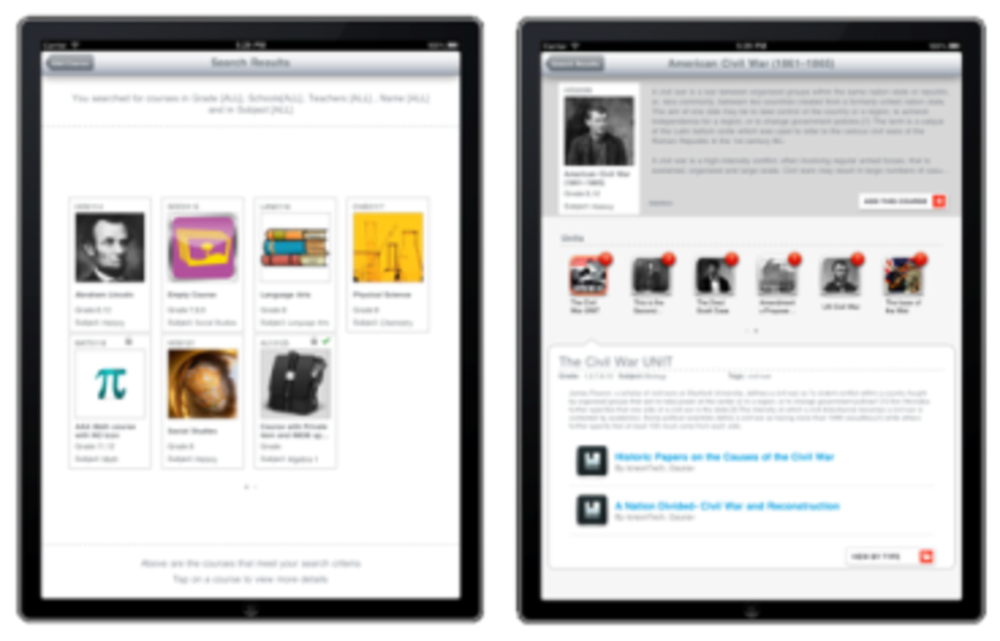When you see a niche in the marketplace you fill it. That’s part of the driving force behind Net Texts, a company that works with schools to replace textbooks with multimedia courses served up on smart devices.
According to the Pew Internet & American Life Project, the number of U.S. teens with smartphones went up 14% between 2011 and 2012, bringing saturation in that age group to about 37%. Add to that the fact that one in four teens (23%) owns a tablet—a percentage almost equivalent to the general adult population—and the trend is clear: Textbooks are not long for this world.
It’s easy to get sentimental about the death of textbooks and lump that nostalgia in with some kind of rant about how soon students won’t know how to do anything if it doesn’t involve a touch screen—but there’s a difference between playing Candy Crush on your tablet and doing your homework on it.
What’s really interesting, though, is the technology behind the Net Texts offering—a proprietary content management system developed by software development company Icreon Tech akin to the kind you’d see at any big marketing organization. Teachers can tailor their course offerings by using one of a variety of Net Texts apps to upload their existing courses and/or mix what they have with content from an archive of open source educational material. The content is then delivered directly to a student’s mobile device, be it Chromebook, iPad, Android, or Nexus.
If marketing is getting more engaging, why shouldn’t school—and if a student is more likely to learn about the Gettysburg address if they can pop in their ear buds and listen to it instantly, why not? I love books (I love them), but thinking back to some of the moth-eaten dog-eared hand-me-down textbooks I used back in the day, I can’t say they were all that enthralling.
The Net Texts platform is strictly for the classroom, but the concept behind it could be applicable to brand marketing.
“At the core of it is the content creator, a platform that can be used to distribute Web content to, say, different clients and their devices,” says Devanshi Garg, Icreon Tech’s chief operating officer. “Imagine L’Oreal, for example, wants to distribute content from its latest project and have it update in real time—you can send that information out to people on the ground who are speaking directly the with the consumer or to salespeople who need access to information locally.”
More than 50 schools already use the platform, including several in districts throughout Massachusetts and Texas—but sometimes the adoption process can be a little rocky. Some teachers aren’t ready to give up the course notes they’ve been using for years, and Net Texts has a bit of convincing to do. The company spends a lot of time targeting teachers who already have a fair share of digital content in their curriculums to help pump up saturation levels.
“With our marketing, we’ve focused on the problem of textbook cost and relevancy,” says Nick Wheatley, technology manager at Net Texts. “The books aren’t updated as quickly as multimedia Web content, which is inherently more current, relevant, and engaging.”
And engagement’s been good. According to independent research firm Metis Associates, more than half of teachers surveyed said their students showed an improvement in classroom attention levels and collaboration with Net Texts, and more than a third of parents surveyed said their child was more excited about school since the Net Texts system was brought in.
In a way, it’s like educational content marketing; engaging lessons to reach your target market—students. It’ll also make backpacks a lot lighter.








